Search

Raj a mere bachelor, who has no intention of marrying is being convinced by his uncle. His uncle passes on the duty to Namrata a married woman whose husband Sanjeev leave her five years ago. Namrata is responsible for finding Raj a suitable bride, while she is busy finding girls for him, he is busy along with his mischievous friend Adi straying away all the girls by making up wired plans. But Raj falls in love with the match – maker herself. While this is happening Sanjeev, Namrata’s husband return and foil all plans between Raj and Namrata.

Anjali is left heartbroken when her best friend and secret crush, Rahul, falls in love with Tina. Years later, Tina’s young daughter tries to fulfil her mother’s last wish of uniting Rahul and Anjali.

Praveen Patel, a 45-year-old married businessman, is approached by Shanaya, an actress, who wants to move in with him to prepare for a role. So he pretends to be single to impress her.
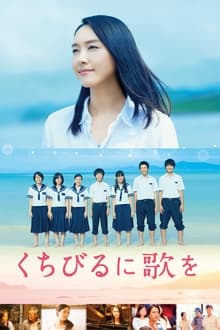
Yuri Kashiwaga was once known as a genius pianist. One day, she returns to her hometown in Goto Islands from Tokyo. There, she begins to work as a temporary teacher at a middle school and advisor for the school chorus. The chorus aims to take part at a competition. Yuri gives the members of the chorus members an assignment. She instructs them to write a letter with the title of “To myself 15 years later.” The 15-year-old boys and girls write about their secrets and worries.

Freelance writer Aoi Teshigahara (Miho Nakayama) lives in Paris, France. Sen Yagami (Osamu Mukai) is a photographer who came to Paris, France due to his younger sister Suzume’s (Mirei Kiritani) insistance. Over the next 3 days, Aoi Teshigahara and Sen Yagami fall in love. Meanwhile, Suzume meets her boyfriend Kango (Gou Ayano), whom they have been in a long distance relationship.
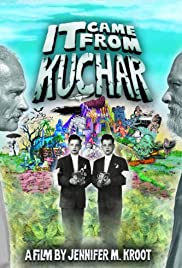
It Came from Kuchar is the definitive, feature documentary about the legendary, underground filmmaking twins, the Kuchar brothers. George and Mike Kuchar have inspired two generations of filmmakers, actors, musicians, and artists with their zany, “no budget” films and with their uniquely enchanting spirits.

Legend holds that 30 years ago, a suburban town was terrorized by the spirit of a woman whose horrid face had been grotesquely disfigured. Roaming the streets wearing a long coat and carrying large scissors, the spirit would approach her young victims and, while removing the mask, ask if she was pretty. The victim’s response would almost always lead to their violent death.
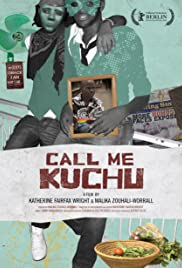
In Uganda, a new bill threatens to make homosexuality punishable by death. David Kato – Uganda’s first openly gay man – and his fellow activists work against the clock to defeat the legislation while combating vicious persecution in their daily lives. But no one, not even the filmmakers, is prepared for the brutal murder that shakes the movement to its core and sends shock waves around the world. (from imdb)
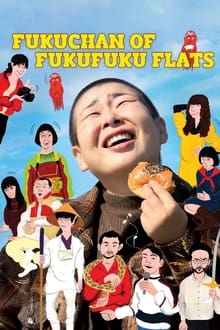
32-year-old Tatsuo Fukuda, nickname “Fuku-chan” (Miyuki Oshima), is a painter who lives in a run-down apartment complex called Fukufuku Flats. He has been a resident ever since he moved to Tokyo after graduating from junior high school in rural Tochigi Prefecture, and has held the same job the whole time. He spends his days working up a sweat painting buildings, his nights mediating disputes between the other denizens of Fukufuku Flats, and his days off flying handmade kites down by the riverside. Fuku-chan is a popular guy who treats everyone equally and with kindness, but romance is his Achilles heel, which causes him to totally mess up a date arranged by his workmate Shimacchi (Yoshiyoshi Arakawa)…


In the summer of 2016, the director of this documentary film bought a bunch of discarded letters from a flea market in Izmir, Turkey. Written in the 70s, the letters were addressed to Kâzım Küçükal, who died during a mountain expedition in 1974, at the age of 19.

When legions of monstrous creatures, known as Kaiju, started rising from the sea, a war began that would take millions of lives and consume humanity’s resources for years on end. To combat the giant Kaiju, a special type of weapon was devised: massive robots, called Jaegers, which are controlled simultaneously by two pilots whose minds are locked in a neural bridge. But even the Jaegers are proving nearly defenseless in the face of the relentless Kaiju. On the verge of defeat, the forces defending mankind have no choice but to turn to two unlikely heroes—a washed-up former pilot (Charlie Hunnam) and an untested trainee (Rinko Kikuchi)—who are teamed to drive a legendary but seemingly obsolete Jaeger from the past. Together, they stand as mankind’s last hope against the mounting apocalypse.
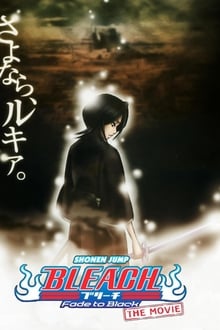
A mysterious reiatsu (spiritual particle) explosion occurs in the center of Seireitei in Soul Society, causing it to be destroyed. At the exact same time, a major change overwhelms Kuchiki Rukia, which leaves her losing something important inside. Urahara Kisuke sends Kurosaki Ichigo to Soul Society to investigate the disturbance. Upon reaching Seireitei, Ichigo is attacked by his ally shinigamis

In Karakura Town, unidentifiable spirits begin appearing en mases. While attempting to deal with these strange souls, Ichigo Kurosaki and Rukia Kuchiki meet Senna, a mysterious shinigami who wipes out most of them. Senna refuses to answer any questions, so Ichigo is forced to follow her while Rukia tries to find out what’s going on.
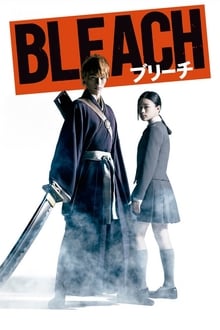
High school student Ichigo Kurosaki lives an ordinary life, besides being able to see ghosts and the blurry memories of his mother death under strange circumstances when he was a kid. His peaceful world suddenly breaks as he meets Rukia Kuchiki, a God of Death.
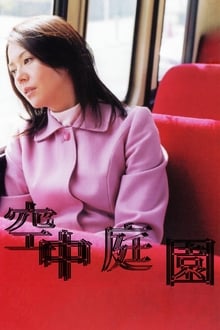
For his fourth full feature, Toyoshi Toyoda has abandoned the theme of the angry young man, examined in depth in Pornostar, Blue Spring and 9 Souls. Kuchu Teien is, on the face of it, more a drama, a character study, than a typical Toyoda genre flick. Yet within this beautifully structured and photographed film, there lies a dark soul. Ostensibly the story of a happy family, it becomes increasingly clear as the movie progresses that the Kyobashis are anything but. Despite a family agreement that they are all open with each other, the entire household knows the opposite is true.